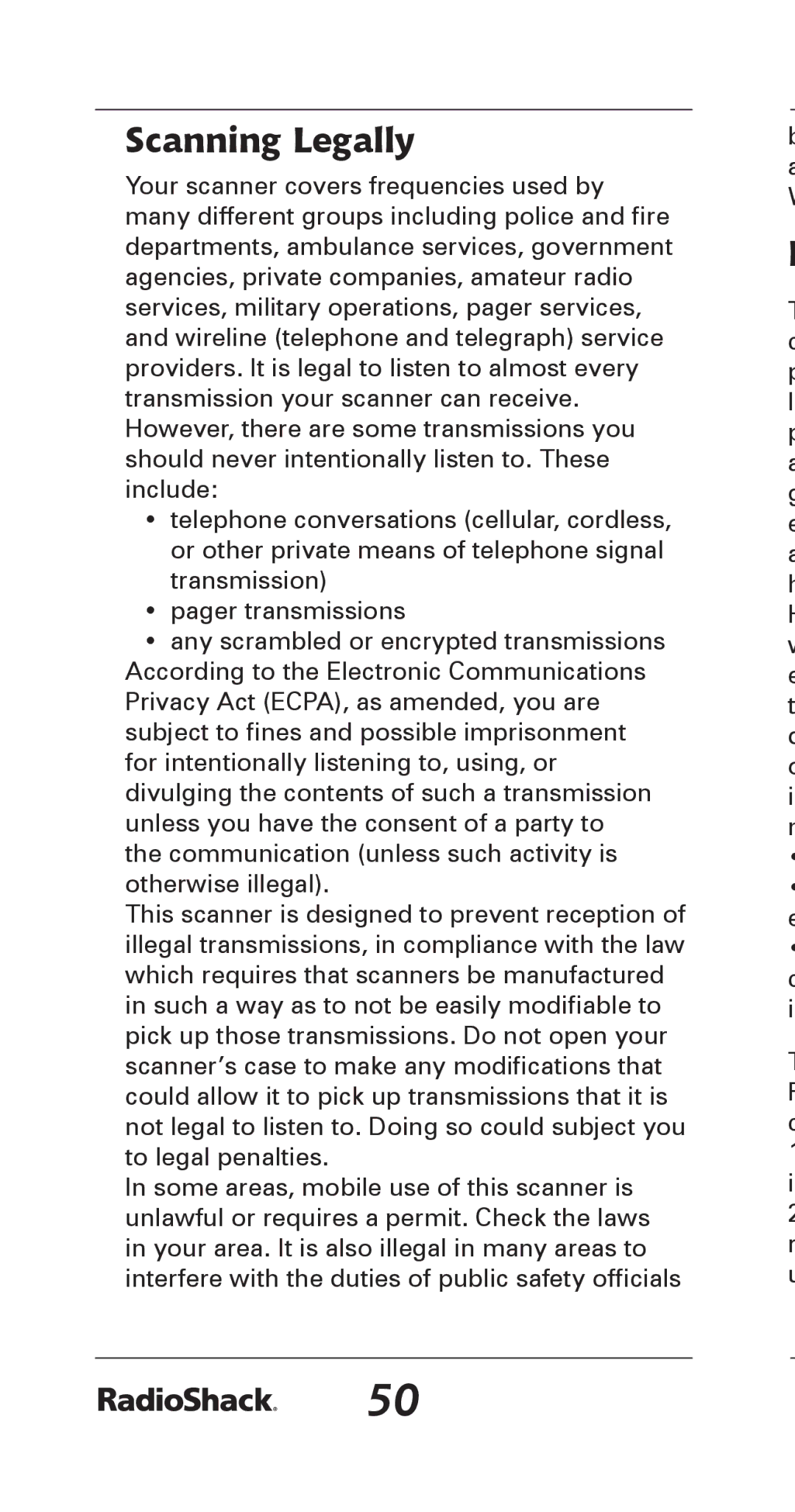
Scanning Legally | b | |
Your scanner covers frequencies used by | a | |
W | ||
many different groups including police and fire | ||
| ||
departments, ambulance services, government | F | |
agencies, private companies, amateur radio |
| |
services, military operations, pager services, | T | |
and wireline (telephone and telegraph) service | c | |
providers. It is legal to listen to almost every | p | |
transmission your scanner can receive. | l | |
However, there are some transmissions you | p | |
should never intentionally listen to. These | a | |
include: | g | |
• telephone conversations (cellular, cordless, | e | |
or other private means of telephone signal | a | |
transmission) | h | |
• pager transmissions | H | |
• any scrambled or encrypted transmissions | w | |
According to the Electronic Communications | e | |
Privacy Act (ECPA), as amended, you are | t | |
subject to fines and possible imprisonment | d | |
for intentionally listening to, using, or | o | |
divulging the contents of such a transmission | i | |
unless you have the consent of a party to | m | |
the communication (unless such activity is | • | |
otherwise illegal). | • | |
This scanner is designed to prevent reception of | e | |
illegal transmissions, in compliance with the law | • | |
which requires that scanners be manufactured | c | |
in such a way as to not be easily modifiable to | i | |
pick up those transmissions. Do not open your | T | |
scanner’s case to make any modifications that | ||
could allow it to pick up transmissions that it is | R | |
not legal to listen to. Doing so could subject you | c | |
to legal penalties. | 1 | |
In some areas, mobile use of this scanner is | i | |
unlawful or requires a permit. Check the laws | 2 | |
in your area. It is also illegal in many areas to | r | |
interfere with the duties of public safety officials | u |
50
